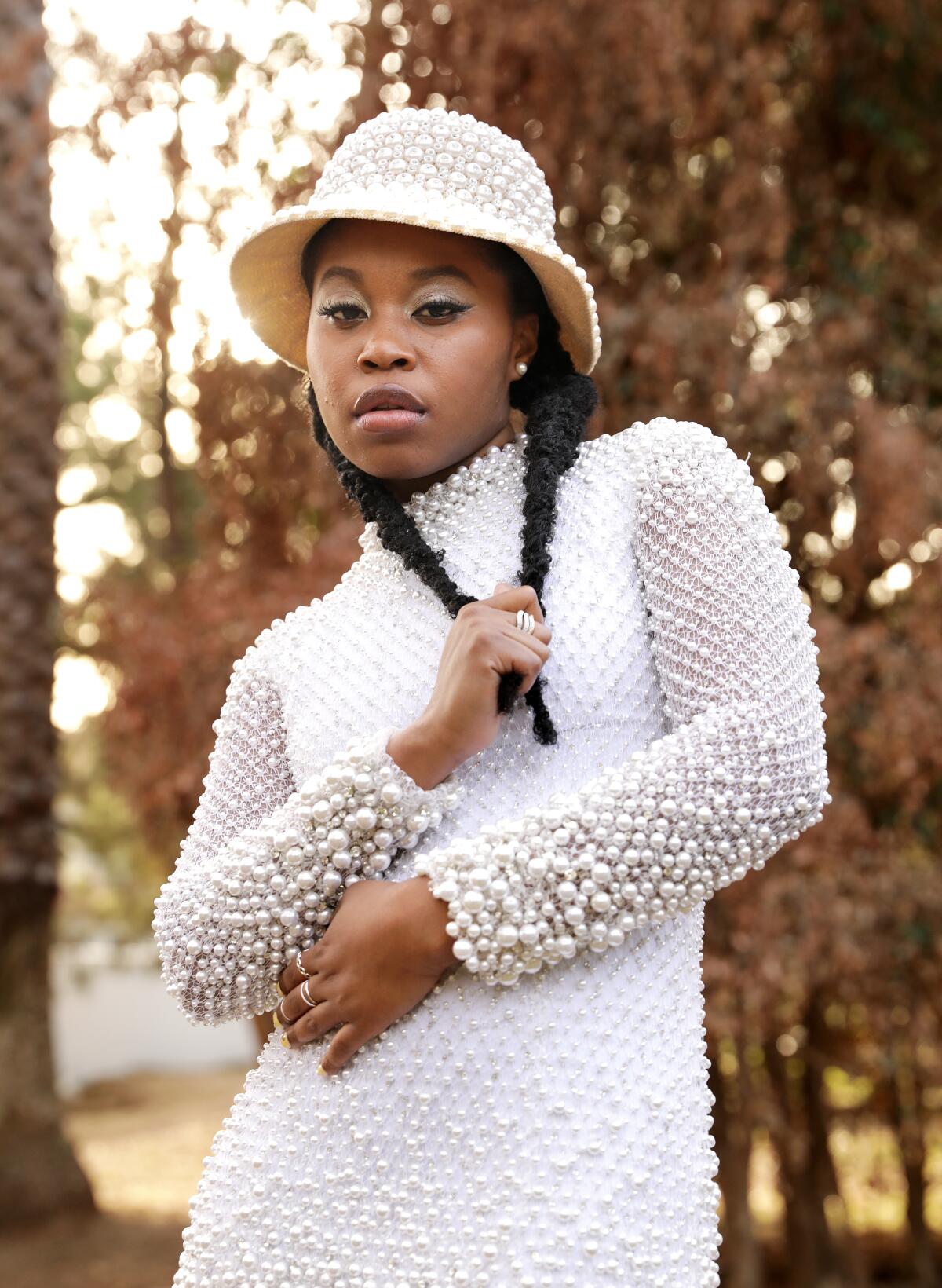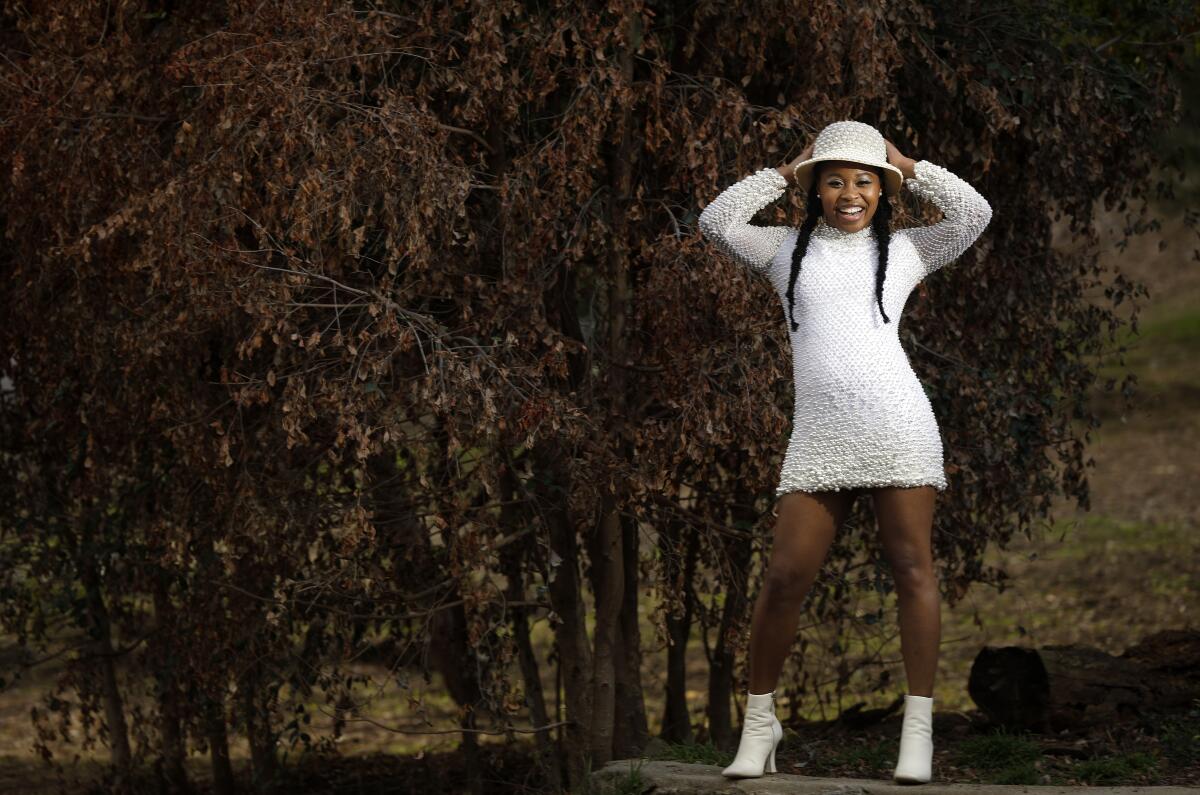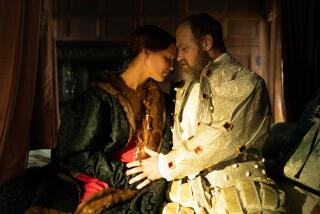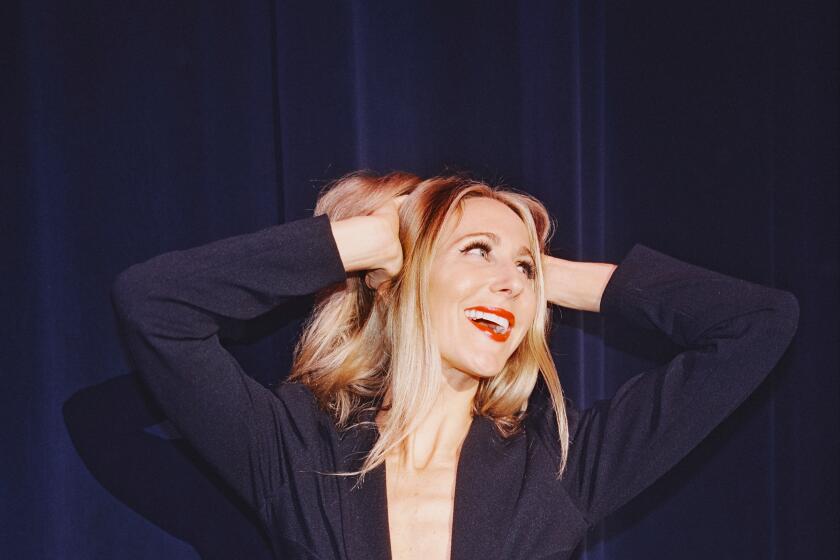Dominique Fishback finds her voice, and isn’t afraid to use it in multiple ways

Dominique Fishback has made the most of her relatively short career thus far, bursting onto the scene in 2014 with her off-off-Broadway play “Subverted” (in which she played 22 characters), then going on to roles in “The Hate U Give,” “The Deuce” and “Show Me a Hero.” She’s keeping the political personal in “Judas and the Black Messiah,” releasing this week. She plays the pregnant girlfriend of a Black Panther leader targeted by the FBI. She spoke with The Envelope via Zoom while quarantined in Brooklyn.
Has quarantine actually been a fertile period for you?
I was waking up very early and going to sleep at midnight, just writing. I was writing a romance pilot — I’m heavily influenced by “Romeo and Juliet.” So, I made a pilot that takes place in 1967 that’s about a Black Panther who falls in love with a girl whose father was a cop. And I was working on a novel called “On Behalf of My Country,” then I started doing an online class — and then George Floyd was murdered and protests started and I couldn’t write any more for a while.
Did you attend any protests around the city?
I did one march across the Brooklyn Bridge, past Pace University — the school I went to and where I found my voice — and ended up in Washington Square Park, where I went every Tuesday in high school when I was part of the MCC [Theater] Youth Company, which is how I got my start in acting. It felt symbolic.
How much did you know about the Panthers and Fred Hampton before signing on with “Judas”?
I had to do my own research. When I was in school, a documentary came out called “The Black Power Mixtape 1967-75,” and it changed my life — I saw Angela Davis, I was in love with Stokely Carmichael for a few years. But we weren’t really taught these things in school. I graduated valedictorian of my high school in Brownsville, Brooklyn, but when I got into Pace, they admitted me in a below-average program. What is going on with our education system?

Obviously, “Judas” is about Fred Hampton more than it is about his girlfriend Deborah, whom you play — and it is historically accurate for the time period of the late 1960s-70s. But what did you think about the way the movement and the film kept women in the background?
I wrote [director and coscreenwriter Shaka King], like, a three-page essay on why it matters. Shaka was a collaborator in the greatest sense of the word. He has to stay on track of the sole mission of the movie. I’m going to be focused on Deb. Dominique Thorne, the other female in the movie, we sat together — we were having our own discussions about women and women’s voices. Ultimately, it is a male-driven story. I felt proud that Deborah went from being a teenage girl, wide-eyed and enamored by [Fred] to standing up to him, becoming a mother, shielding somebody’s body and understanding how radical it is to be a Black mother. Maybe somebody will create the stories of these women who have always been here.
Is it a goal of yours as a performer and creator to stick largely to political and sociopolitical projects?
I love romances, I love rom-com, I love “The Vampire Diaries.” I love “The Fosters.” So, when I wanted to be an actress, it was, like, “romantic lead,” because I was a kid, aspiring. But I guess because where I come from and the influences in my life, I was galvanized and inspired to write. I felt like at Pace, with “Subverted,” I was able to be a liaison where I can be raw and tell the truth and people understand my heart, where I’m coming from.
You journal and write poems quite a lot during projects and clearly have a lot of creative juice. Do you see yourself as a writer and director and actor in the future?
Actually, I want to do music. I’ve always wanted to put spoken word to piano, like how Lauryn Hill did on “MTV Unplugged,” make a poetry book, do those things. “Children of Blood and Bone” resonated with me; I’d love to be a vessel for that trilogy. But I have journals from when I was 12 years old, and I wonder: How can I use them to tell stories or make people feel seen and heard? Writing is a part of it. I’m sure directing will be a part of it. I just feel creative expression in every way. I’ve even been painting.
What’s the first thing you’ll do once you leave the house again without a mask and go out to see people?
I want to have a birthday party where we play reggae and dance and just love each other. I want to do that — without restriction, without fear.
More to Read
From the Oscars to the Emmys.
Get the Envelope newsletter for exclusive awards season coverage, behind-the-scenes stories from the Envelope podcast and columnist Glenn Whipp’s must-read analysis.
You may occasionally receive promotional content from the Los Angeles Times.








